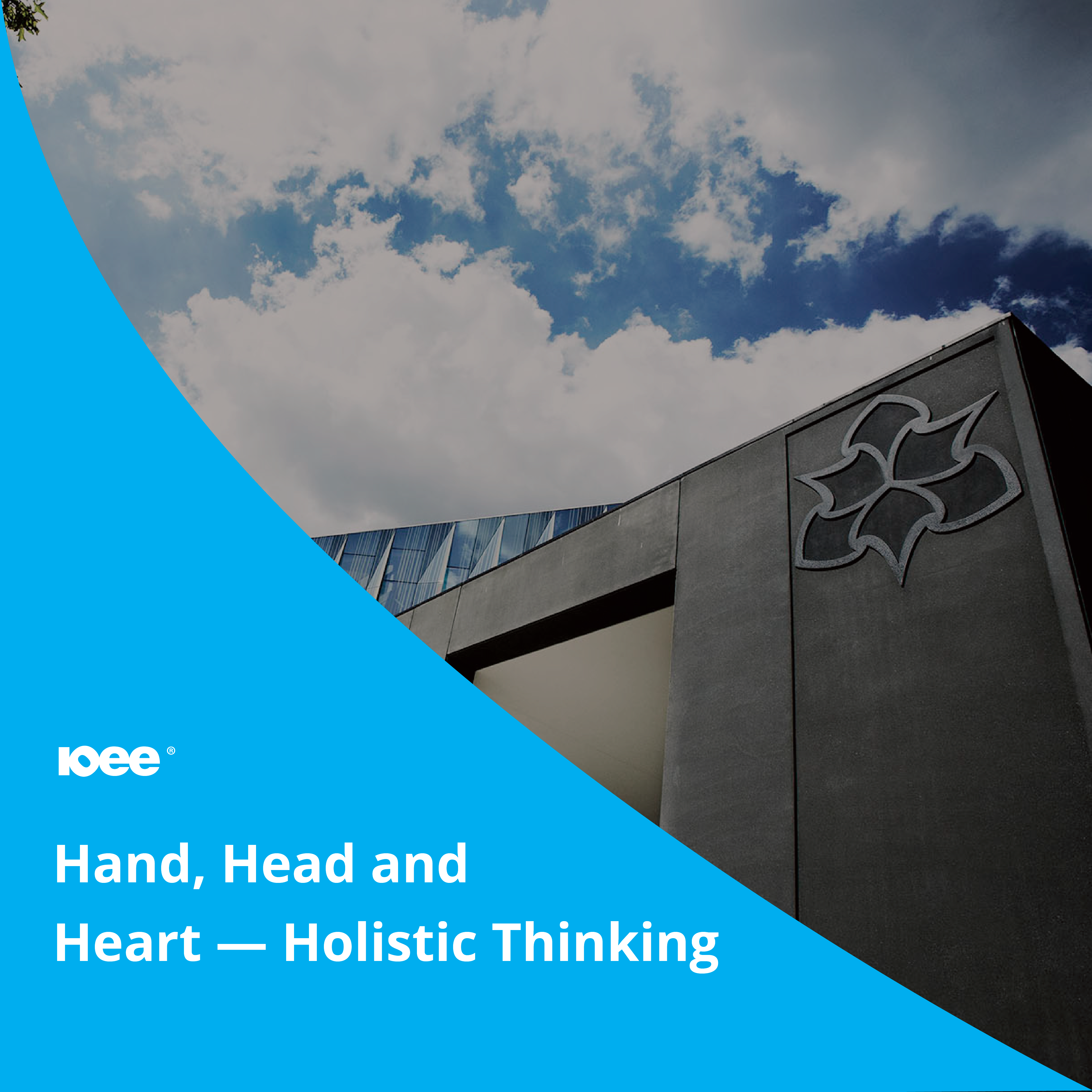The author Dr Rita G. Klapper is Reader in Enterprise and Sustainability at Manchester Met and is part of the University’s IOEE Centre of Excellence. Rita uses innovative pedagogy and elements from yoga such as mindfulness in her course creations.
Enterprise & entrepreneurship education have long found its way into our Higher Education curricula, and much has been written about the success of such programmes as well as the pitfalls thereof. At IOEE Centre of Excellence Manchester Met we offer a variety of enterprise modules (Previously featured in Think Enterprise Issue 28) and in two of our undergraduate enterprise modules. I am presently experimenting with a new theoretical framework for assessing and designing courses: the Sipos et al (2008) Hands, Head and Heart (HHH) framework, which is essentially shorthand for the development of a variety of different, yet complementary competences and skills, in our learners.
The framework has to date primarily been applied in a sustainability education context.
The Head dimension engages participants’ heads i.e. the cognitive domain, ensuring their engagement with the topic, here enterprise creation.
The Hands dimension relates to the enactment of theoretical learning through practical skill development, here within the context of developing a start-up with a business model and a strategic map that ensures sustainable growth and in the sense of having all three dimensions of economic, social and environmental sustainability at its heart.
The Heart dimension relates to the affective domain, including values and attitudes that are translated into – here – entrepreneurial and enterprising behaviours, as well as passion and behaviours for sustainable products.
Three dimensions
It has been argued elsewhere that educational learning programmes that meet these learning objectives facilitate personal experience for learners resulting in potentially profound changes in knowledge, skills and attitude.
The Hands, Head and Heart framework basically responds to the increasingly important question of what competences and experiences should we teach in the context of enterprise education that is in line with:
A) an ever changing, and very diverse economic, social and environmental context;
B) the need to integrate a sustainability perspective, and that:
C) considers the identity and hence the feelings and emotions of those who create.
It is expected that this threefold approach will provide further insight into the extent to which sustainable entrepreneurship can be learned and is accepted by the students normatively, cognitively and affectively, i.e. practiced in their lives. In turn this should help to reveal to what extent a transformation in mindset takes place, ie what impact an entrepreneurial course with a sustainability dimension has, in the Manchester Met context, and why.
International experience
In my own practice I have applied this theoretical framework in the assessment of a sustainability course in the Dutch HE context, and also as an assessment tool for postgraduate portfolios at a German university. In the former I explored to what extent an undergraduate BSc programme integrated the different dimensions of Hands, Head and Heart and found that there was, as could probably have been expected, a neglect of the Heart dimension.
Hands and Head were appropriately catered for but emotions and feelings were undervalued according to learners’ assessments of their study programme.
In the context of the German university Hands, Head and Heart was used as an organising logic for course assessment, with key questions guiding the examiner in assessing the postgraduate learners’ knowledge, skills and competences in different topic areas such as leadership, ethics and values, sustainability management as well as entrepreneurship. Overall using the framework as a guiding approach for both assessing course contents and student work has been found useful as a simple, clear, coherent, comprehensive and transparent set of criteria for both learners and examiners.
Course evaluation at Manchester Met
At Manchester Met I am presently experimenting with the tool in two ways: firstly to obtain theoretically structured feedback from undergraduate learners about the contents of two enterprise courses; and to assess what degree these correspond to Hands, Head and Heart dimensions.
This data will then be used to critically evaluate and update the course contents. Secondly, to explore the Heart dimension in our courses. Many of our enterprise courses have been very much theory driven, while some have striven to achieve a balance between theory and practice, but very few have integrated feelings and emotions – the Heart dimension – as a key component.
Given that sustainability in enterprise education is one of the key aspects that we have been aiming to develop and that it stirs up emotions in our learners as well as promotes critical thinking, the heart dimension needs further consideration and development.
The approach fits with my long-term pedagogical work using innovative learning techniques, including art, music, theatre as well as mindfulness and yoga exercises to increase learners’ awareness of their own skills, competences and their own potential.
One of the early findings from this ongoing examination of our courses is that students have already picked up the usefulness and ease of the Hands, Head and Heart framework for increasing the depth of their reflections of their enterprise portfolios, hence a very promising start.

